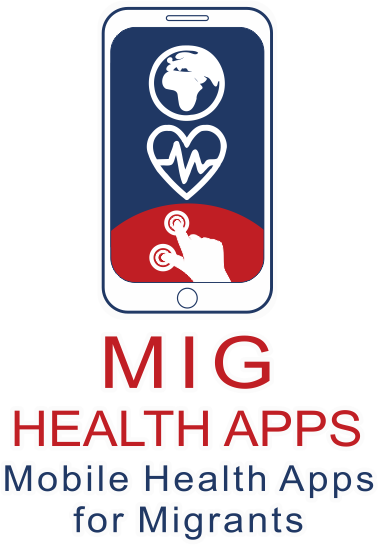05 Health applications to reduce screen addiction and substances use (Course5-EN)
Health applications to reduce screen addiction and substances use 
This online module is addressed to trainees.
Objectives

This module offers a detailed exploration of the fundamental principles behind addiction to screen and tobacco use, enriched with practical, interactive experiences and simulations. Participants will gain essential skills in identifying addictive tendencies, evaluating risk elements, and applying preventative measures. Through engaging simulations, they will enhance their capacity for effective intervention, offering supportive and understanding assistance, and playing a pivotal role in fostering health-conscious habits in their communities. Additionally, this module will equip them with digital competencies and acquaint them with specialized applications designed for these purposes.
Image by vectorjuice on Freepik
Images by vectorjuice on Freepik
LessHealth applications to reduce screen addiction and substances use 
This online module is addressed to trainees.
Objectives

This module offers a detailed exploration of the fundamental principles behind addiction to screen and tobacco use, enriched with practical, interactive experiences and simulations. Participants will gain essential skills in identifying addictive tendencies, evaluating risk elements, and applying preventative measures. Through engaging simulations, they will enhance their capacity for effective intervention, offering supportive and understanding assistance, and playing a pivotal role in fostering health-conscious habits in their communities. Additionally, this module will equip them with digital competencies and acquaint them with specialized applications designed for these purposes.
Health applications to reduce screen addiction and substances use 
This online module is addressed to trainees.
Objectives

This module offers a detailed exploration of the fundamental principles behind addiction to screen and tobacco use, enriched with practical, interactive experiences and simulations. Participants will gain essential skills in identifying addictive tendencies, evaluating risk elements, and applying preventative measures. Through engaging simulations, they will enhance their capacity for effective intervention, offering supportive and understanding assistance, and playing a pivotal role in fostering health-conscious habits in their communities. Additionally, this module will equip them with digital competencies and acquaint them with specialized applications designed for these purposes.
Course Description

Objectives
This module offers a detailed exploration of the fundamental principles behind addiction to screen and tobacco use, enriched with practical, interactive experiences and simulations. Participants will gain essential skills in identifying addictive tendencies, evaluating risk elements, and applying preventative measures. Through engaging simulations, they will enhance their capacity for effective intervention, offering supportive and understanding assistance, and playing a pivotal role in fostering health-conscious habits in their communities. Additionally, this module will equip them with digital competencies and acquaint them with specialized applications designed for these purposes.
Participants and roles
- Newcomer migrants; learners. Migrants who wish to improve their use of addictive substances (tobacco) or their excessive use of screens.
- Migrants Peers; learners or trainers after being trained as trainers. When they will attend as trainees, they could play a role of supporting the Newcomer Migrants along the training process, including support in overcoming language barriers.
- Supports: learners or trainers after being trained as trainers. When they will attend as trainees, they could play a role of supporting the Newcomer Migrants along the training process, including support in overcoming language barriers.
Learning outcomes
- Learners will receive relevant, evidence-based information about the problems and/or risks associated with screen addiction and substance use.
- Educational action via specific applications will encourage learners to think about and become aware of the health problems associated with addiction.
- Learners will familiarize themselves with the various health applications relating to addictions (self-help strategy), identify useful and relevant applications on the subject and learn how to use them wisely.
- The acquisition of personal knowledge and skills, as well as the provision of useful resources, will enable them to deal with problematic situations and, if necessary, resort to specific health services.
- Learners will understand the notion of individual or collective responsibility for the consequences of risky behavior (endangering the health and safety of consumers and/or those around them).
Training Contents
- General information on substance use, addictions and their health consequences.
- The importance of prevention and risk reduction.
- Nomophobia and substance use: as addictions and substance use can take many forms, we propose to approach the subject by focusing on two highly addictive and most frequently experienced substances, namely tobacco and screen addiction, in particular cell phones.
Duration
Estimated Duration: 9 hours
- Teaching sessions: 4 hours
- Self-study supported by e-learning tools: 1 hour
- Experiential training session: 2 hours
- Closing session: 1 hour
Resources
- Training material: ppt. for didactic session
- Training materials: activities
- E-learning platform and e-learning tool
- Theme-specific applications (tobacco & screen addiction)
This module offers a detailed exploration of the fundamental principles behind addiction to screen and tobacco use, enriched with practical, interactive experiences and simulations. Participants will gain essential skills in identifying addictive tendencies, evaluating risk elements, and applying preventative measures. Through engaging simulations, they will enhance their capacity for effective intervention, offering supportive and understanding assistance, and playing a pivotal role in fostering health-conscious habits in their communities. Additionally, this module will equip them with digital competencies and acquaint them with specialized applications designed for these purposes.
- Newcomer migrants; learners. Migrants who wish to improve their use of addictive substances (tobacco) or their excessive use of screens.
- Migrants Peers; learners or trainers after being trained as trainers. When they will attend as trainees, they could play a role of supporting the Newcomer Migrants along the training process, including support in overcoming language barriers.
- Supports: learners or trainers after being trained as trainers. When they will attend as trainees, they could play a role of supporting the Newcomer Migrants along the training process, including support in overcoming language barriers.
- Learners will receive relevant, evidence-based information about the problems and/or risks associated with screen addiction and substance use.
- Educational action via specific applications will encourage learners to think about and become aware of the health problems associated with addiction.
- Learners will familiarize themselves with the various health applications relating to addictions (self-help strategy), identify useful and relevant applications on the subject and learn how to use them wisely.
- The acquisition of personal knowledge and skills, as well as the provision of useful resources, will enable them to deal with problematic situations and, if necessary, resort to specific health services.
- Learners will understand the notion of individual or collective responsibility for the consequences of risky behavior (endangering the health and safety of consumers and/or those around them).
- General information on substance use, addictions and their health consequences.
- The importance of prevention and risk reduction.
- Nomophobia and substance use: as addictions and substance use can take many forms, we propose to approach the subject by focusing on two highly addictive and most frequently experienced substances, namely tobacco and screen addiction, in particular cell phones.
Estimated Duration: 9 hours
- Teaching sessions: 4 hours
- Self-study supported by e-learning tools: 1 hour
- Experiential training session: 2 hours
- Closing session: 1 hour
- Training material: ppt. for didactic session
- Training materials: activities
- E-learning platform and e-learning tool
- Theme-specific applications (tobacco & screen addiction)

Objectives
-
To equip participants with the knowledge of the fundamental principles behind tobacco use and addiction to screen.
-
To equip with critical skills for recognizing addiction patterns, evaluating risks, and implementing prevention strategies, enhancing their intervention and support capabilities, thereby enabling them to actively promote healthy lifestyles in their communities.
 Competences
Competences
-
Participants will gain insights into the core principles of addiction related to screen and tobacco use.
- Participants' capabilities will be enhanced by digital skills, enabling them to familiarize themselves with specialized applications designed for this purpose.
Duration: 4 hours
Objectives
-
Discover applications to help you stop smoking and reduce screen addiction
-
Identify the main activities needed to establish better health habits and how these applications can contribute to them
-
Understand the main concepts related to health applications and how they can be useful for migrants
-
Develop digital skills and familiarize with the use of health specifics apps
Competences
-
Definition of what substance use and addictions apps are
-
Explanation of how substance use and addictions apps can help improve quality of life and health
-
Familiarization with and ability to navigate different health apps and integrate them into daily life.
Duration: 2 hours
Objective
- Self-Assessment via a Quiz
Duration: 1 hour
Calendar
Announcements
- - There are no announcements -
